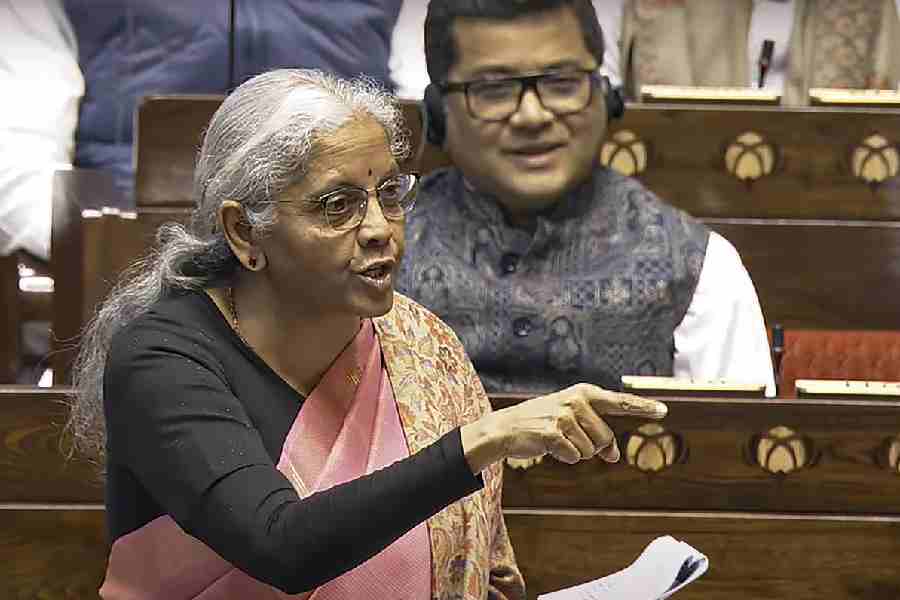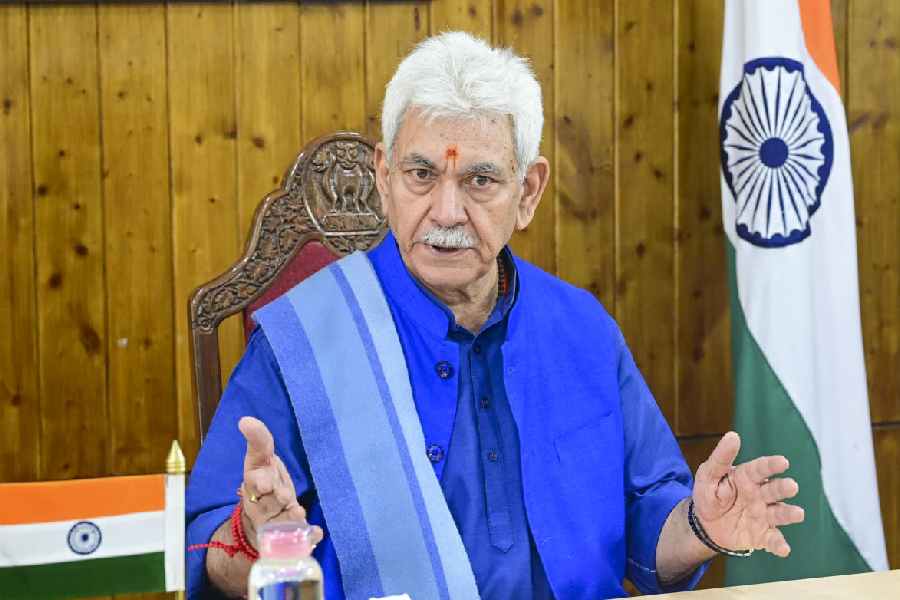The government on Monday built a case against the inclusion of the word “socialism” in the Preamble to the Constitution in 1976 and accused first Prime Minister Jawaharlal Nehru of trying to curb freedom of speech by amending it in 1951, as the Congress put up a strong counter on both issues.
During a debate on the Constitution in the Rajya Sabha, finance minister Nirmala Sitharaman said the socialism model had ruined the Indian economy for four decades and failed to eradicate poverty.
The Indira Gandhi government in 1976 passed the 42nd constitutional amendment to insert the words “secular” and “socialist” to the Preamble. The amendment also introduced “fundamental duties”.
Sitharaman questioned the amendment process during the Emergency when the term of the Lok Sabha was extended “without proper justification” and the Opposition was put in jail. Only five members opposed the bill in the Lok Sabha and there was no one in the Rajya Sabha to oppose it.
“The alteration of the Preamble to include ‘socialist’ and ‘secular’ highlights the disrespect and disregard the Congress had for constitutional processes, principles and institutions. The amendments were not about strengthening democracy but for protecting those in power,” she said.
The 42nd amendment sought to reduce the power of the Supreme Court and the high courts to rule on theconstitutional validity of any law. This power of the courts was restored by the 44th amendment brought by the Moraji Desai governmentin 1978, when Indira Gandhi as the Opposition leader had supported it.
Sitharaman said Babasaheb Ambedkar, the chairman of the drafting committee of the Constitution, had not supported “socialism” in the Preamble. “Therefore in the original Constitution, the word socialism was not there as much as the word secularism…All these together turned the Constitution into a qualitatively different text from what it was originally as adopted,” she said.
The minister said the Soviet model of socialism marked by control and licence raj that Nehru and Indira purportedly followed was a model which did not do any good to the country. Congress leader C. Rajagopalachari had in 1962 opposed the model, saying it was leading to corruption, Sitharaman said.
“Periodically, the Congress questioned the ‘BJP, RSS, Jana Sangh (the previous avatar of the BJP), what was your role during the freedom movement’? We all know it and we have said it. But I want to ask the Congress party, what is your role in India’s economic freedom, in building the economic strength of India? Socialism was brought to the Preamble through the 42nd Amendment Act only to prove that they are doing the right thing although that was not needed at all because the Directive Principles of State Policy had enough,” the minister said.
Though the country changed course in 1991, it had lost four precious decades, Sitharaman said. “The base income remained low. With all this socialism, the 42nd amendment to change the Preamble, the much promised ‘garibi hatao (eradicate poverty) has not been delivered by them. If it has not been delivered by them, what did that socialism do to us?” she asked.
She said the first amendment made to the Constitution in 1951 was aimed to curb freedom of speech for reasons such as public order, friendly relations with foreign countries and incitement to violence. “The first constitutional amendment was brought by the interim government within a year of its adoption. It was aimed to curb freedom of speech,” she said.
Congress MP Mallikarjun Kharge said the RSS and the Jana Sangh wanted a Constitution based on the Manusmriti, a Hindu scripture that codifies the caste system and prevents women from receiving education. “You objected to socialism. You believe in inequality. These people hated the national flag, Ashok Chakra and the Constitution,” Kharge said.
“‘Socialist’ and ‘secular’ have been added to the Preamble. Fundamental duties have been added. Is it wrong? The Supreme Court has ruled that socialism and secularism are part of the basic structure of the Constitution,” he said.
Kharge also quoted from the RSS mouthpiece, Organiser, which in its editorial on November 30, 1949, opposed the Constitution. He said the Organiser wrote against universal franchise in India. The RSS unfurled the Tricolour in its headquarters in 2002 “out of compulsion” following a court directive, he said.
Kharge added that the first amendment to the Constitution was necessary to overcome an adverse judgment of the Supreme Court on reservation for SCs and STs. Apart from the provision for freedom of speech, the first amendment also allowed statesto frame laws for the advancement of socially and economically backward sectionsand abolition of the zamindari system.









